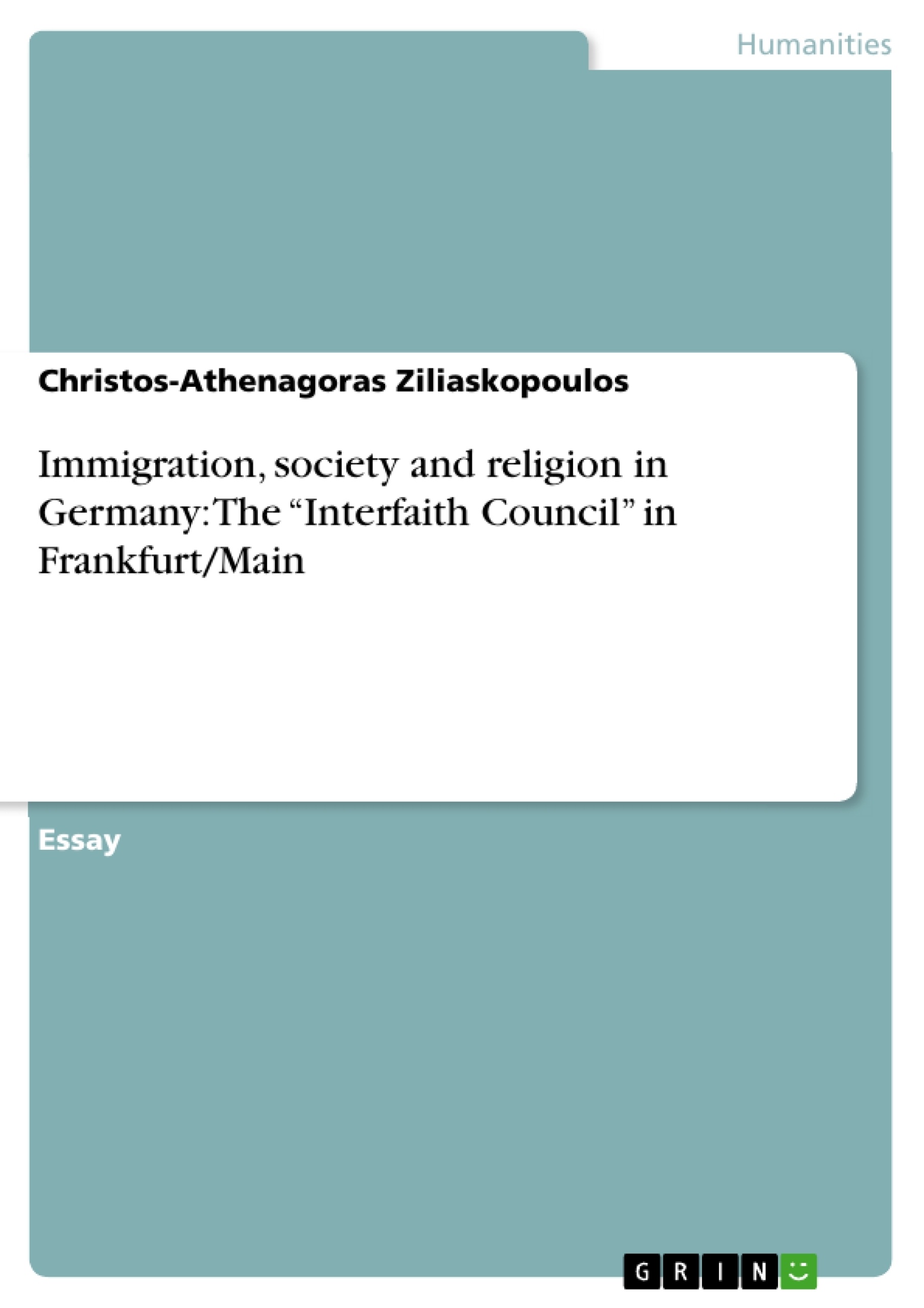It is only after 1960´s immigration has been framed negatively by Western European countries. A brief answer to the question why the view towards the immigrants changed in 1960´s could be the dissolution of the Eastern Block which caused enormous demographic changes which had as a consequence serious impact on socioeconomic level. The mobilization of a great mass of people lead European national states to ethnicise their migration policies in a way that encourage the arrival of immigrants from the simiral ethnic background, in order to achieve, a re-homogenization in the Post- Communist era. Immigrants of different cultural background rather that the majority´s were disapproved. Specifically, on the German example, immigration inflow was considered a necessity for the rebuilt of a dilapidated Germany. Germany failed on the re-patriation process of the „guest process“ which ended being permanent residents in the host country. It is a considerably recent attempt for the German national authorities to move integration to a policy concern and establish a new civil and social identidy for all citizens. Religious and cultural identidy are most then ever important in postmodern history of Germany. Frankfurt’s Interfaith Council (Rat der Religionen) , created on April 1. 2009, acts cooperatively with the local authorities of the city of Frankfurt. The purpose of the Council is the promotion of religion by the dialogue between them.
Table of Contents
- Introduction
- Immigration in Germany
- The Interfaith Council in Frankfurt
Objectives and Key Themes
This essay examines the role of the Interfaith Council in Frankfurt/Main, Germany, and its efforts to promote interfaith dialogue and peaceful coexistence in a city marked by cultural and religious diversity. The essay aims to analyze the historical context of immigration in Germany, particularly the influx of immigrants after the 1960s, and how these developments shaped the need for interfaith initiatives. The key themes explored include:- The historical context of immigration in Germany and its impact on social and cultural life.
- The role of interfaith dialogue in promoting understanding and reducing conflict.
- The challenges and opportunities of multiculturalism in modern Germany.
- The impact of the Interfaith Council in Frankfurt/Main on promoting peaceful coexistence and social harmony.
- The importance of civil society initiatives in addressing social issues and promoting intercultural understanding.
Chapter Summaries
- Introduction: This chapter sets the stage for the essay by outlining the historical context of immigration in Western European countries, particularly in the 1960s. It examines the factors that led to a shift in attitudes towards immigration, including the dissolution of the Eastern Bloc and the rise of heterophobic discourses.
- Immigration in Germany: This chapter focuses on the specific case of Germany, tracing the history of immigration from the post-war period to the present. It explores the role of guest workers, asylum seekers, and “ethnic Germans” in shaping the country's demographic landscape. The chapter also highlights the evolving approach to integration and the importance of establishing a new civil and social identity for all citizens.
- The Interfaith Council in Frankfurt: This chapter introduces the Interfaith Council of Frankfurt/Main, its objectives, and its role in promoting interfaith dialogue and peaceful coexistence within the city. The chapter discusses the council's cooperative relationship with local authorities and its commitment to fostering mutual understanding among different religious communities.
Keywords
This essay explores the complexities of immigration, society, and religion in Germany. Key concepts include interfaith dialogue, multiculturalism, social integration, civil society initiatives, peaceful coexistence, and the historical context of immigration in Germany. The essay focuses on the Interfaith Council in Frankfurt/Main as a case study for examining the role of interfaith organizations in promoting understanding and reducing conflict in a diverse society.Frequently Asked Questions
What is the Frankfurt Interfaith Council?
Created in 2009, the "Rat der Religionen" is a council that promotes dialogue between different religious communities and cooperates with local authorities in Frankfurt/Main.
How did immigration in Germany change after the 1960s?
After the 1960s, immigration became more ethnicized and was often framed negatively due to socio-economic changes following the dissolution of the Eastern Bloc.
What was the "guest worker" process in Germany?
Germany initially recruited "guest workers" for rebuilding the country, but the repatriation process failed, and many became permanent residents, leading to a need for new integration policies.
What is the main objective of the Interfaith Council?
The primary goal is to foster peaceful coexistence and mutual understanding in a multicultural city through interfaith dialogue.
Why is religious identity important in postmodern Germany?
As Germany moves toward establishing a new civil identity, religious and cultural backgrounds have become central concerns for social integration and social harmony.
- Citar trabajo
- Dr. Christos-Athenagoras Ziliaskopoulos (Autor), 2012, Immigration, society and religion in Germany: The “Interfaith Council” in Frankfurt/Main, Múnich, GRIN Verlag, https://www.grin.com/document/192881



